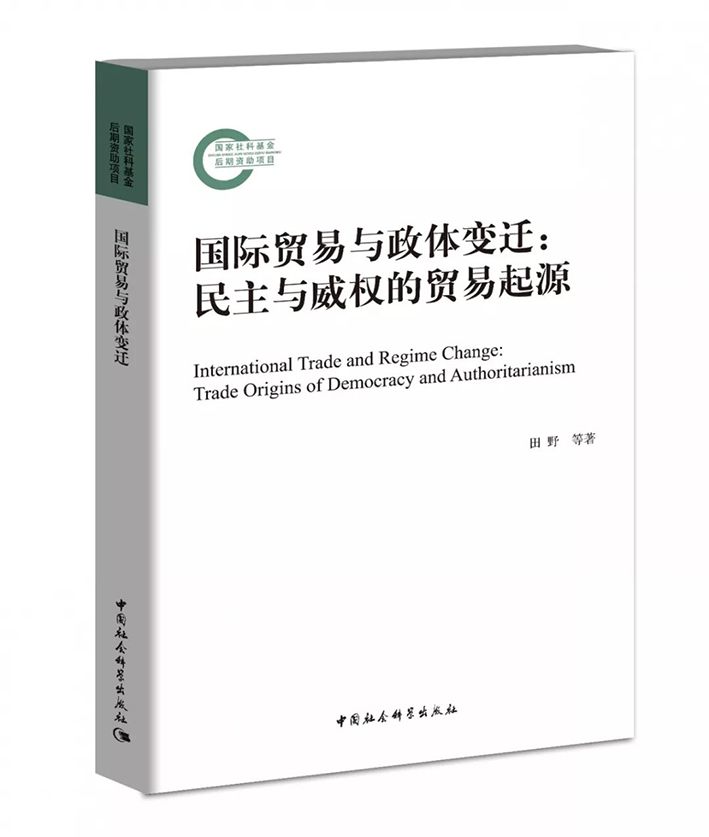International trade leads to democracy and authoritarianism

International Trade and Regime Change: Trade Origins of Democracy and Authoritarianism
Different countries have reached different domestic political results through their participation in international trade. Some countries have achieved democratic transitions, while others have undergone authoritarian consolidation. What role does international trade play in the change of a country’s regime?
Under the analytical paradigms of Karl Marx (1818–83), Friedrich Engels (1820–95) and Barrington Moore (1913–2005) and with relevant theories of international political economy, comparative politics and international economics, Tian Ye, a professor from the School of International Studies at Renmin University of China and editor-in-chief of World Political Studies, has conducted a comparative analysis consisting of a focus on Brazil of the late 19th century and the 1970s, South Korea and Singapore, Turkey and Thailand, and Venezuela and Kazakhstan. This analysis illustrates how international trade leads to two different domestic political outcomes, namely, democratic transformation and authoritarian consolidation.
International trade can help to equalize prices of production factors worldwide and thus have different effects on the income and wealth of owners of different production factors. Owners with abundant factors will use their increased income and wealth to more effectively overcome the dilemma of collective action and accumulate more political resources. Since whether or not to turn to democracy depends on the contrast of powers between classes, changes caused by international trade will directly affect the direction of authoritarian regimes. When the initial regime is authoritarian, international trade with different factor endowments will generate different impacts on the regimes of backward economies: When the labor factor is abundant, international trade tends to promote democratic transformation; when natural resources are abundant, it tends to consolidate authoritarianism.
The countries involved in the case studies are widely distributed in the world, including three East Asian countries, two Latin American countries, one Middle Eastern country and one Central Asian country. These case studies span from the end of the 19th century to the beginning of the 21st century. Given their significant differences in historical contexts, cultural traditions, economic development levels, political systems and international environments, these case studies have a strong explanatory power to support the theory presented in this book.
edited by YANG LANLAN
